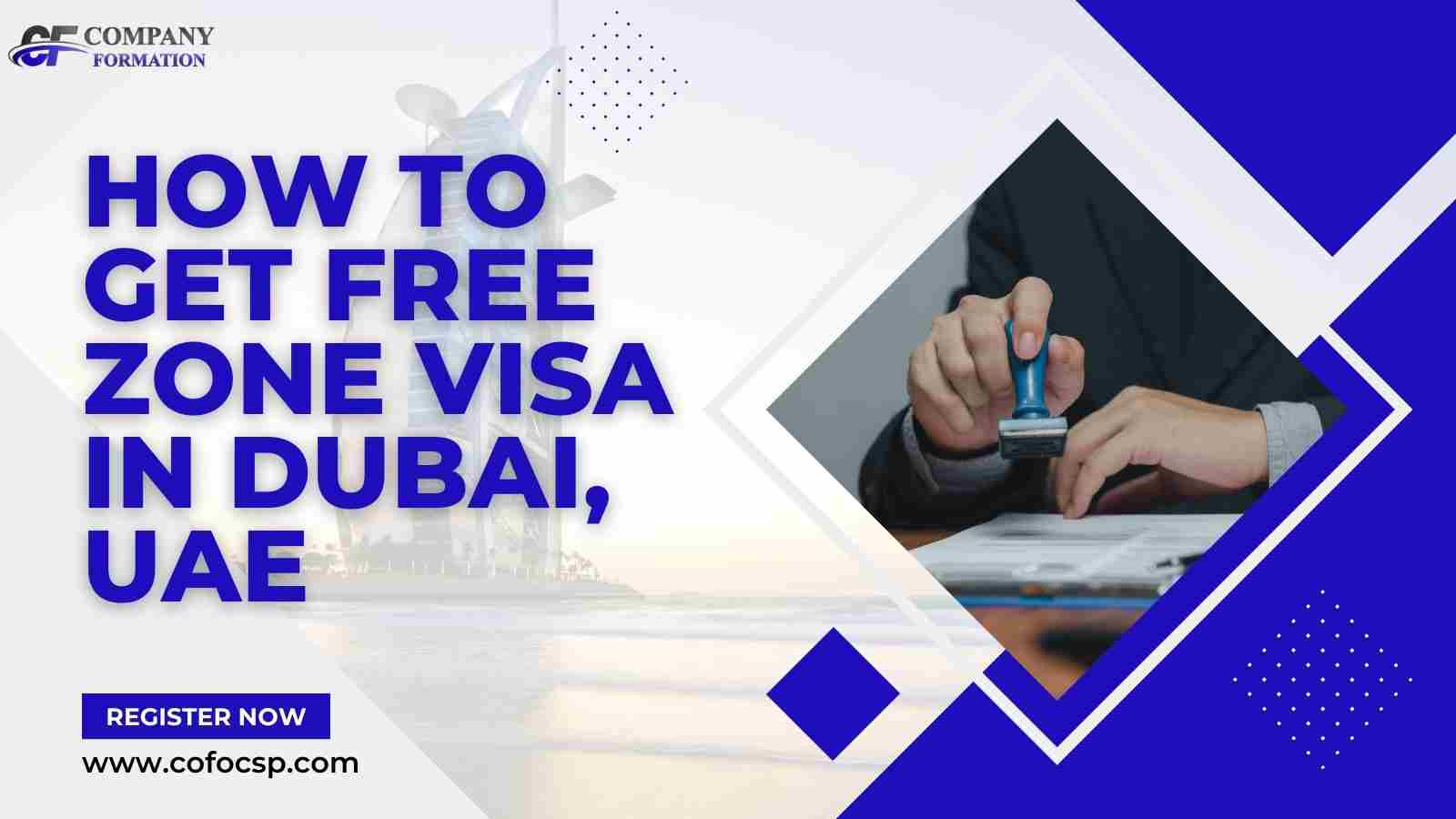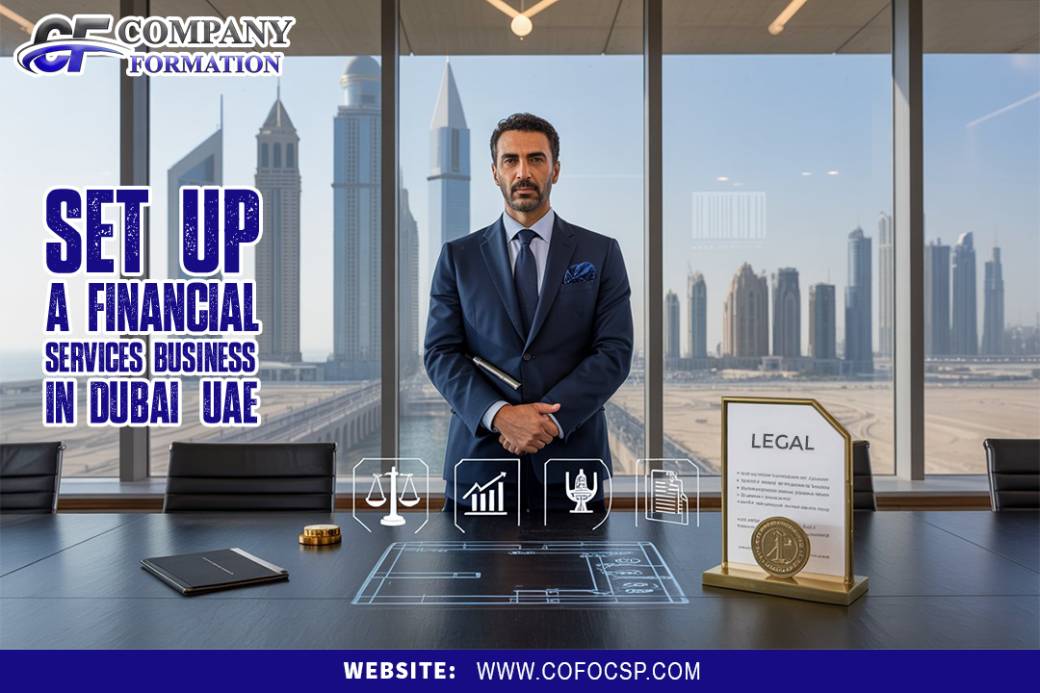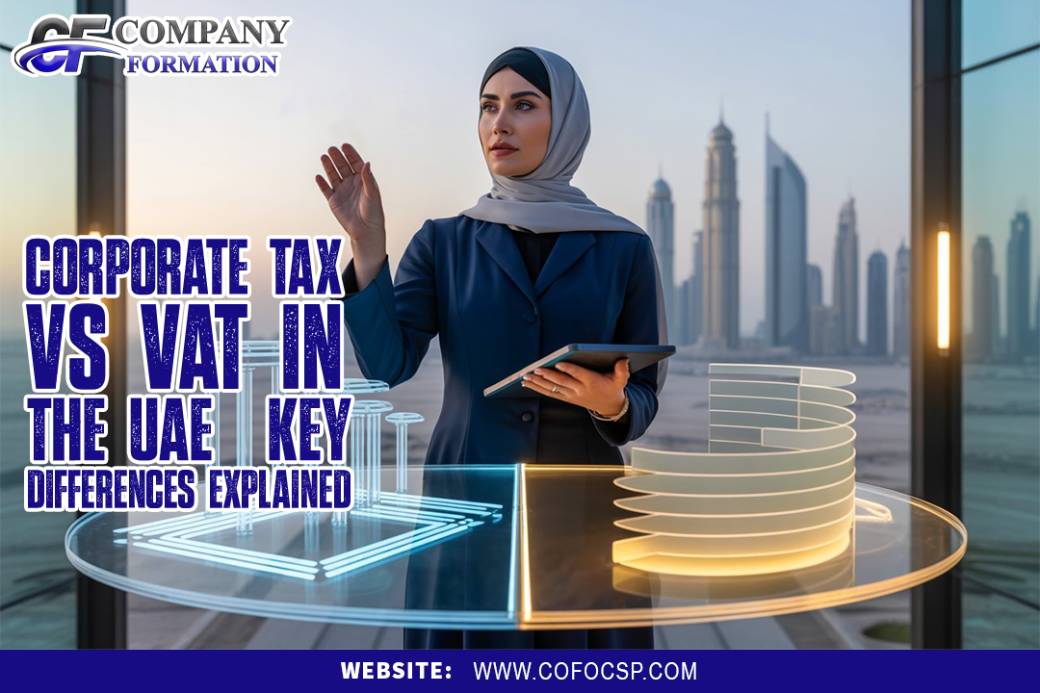How to Get a Free Zone Visa in Dubai, UAE
To get a free zone visa in Dubai, UAE, choose a free zone like DMCC or IFZA that matches your business, register your company with the free zone authority, apply for the visa through their e-channel portal with documents like passport copies and proof of registration, complete a medical fitness test, register for an Emirates ID, and finalize with visa stamping. The process takes about 10-15 days, with costs starting at AED 3,750, depending on the free zone and visa type (e.g., investor visa, employment visa). You’ll enjoy benefits like tax exemptions and 100% foreign ownership, but you must follow free zone rules, like securing a business license and maintaining health insurance.
Navigating the UAE free zone visa process can feel overwhelming, but it’s a straightforward path to living and working in one of the world’s top business hubs. I’ve gone through this process myself when setting up a small tech consultancy in Dubai, and I’m here to break it down for you. Whether you’re an entrepreneur eyeing a company formation in Dubai, a professional seeking an employment visa, or a freelancer exploring UAE free zone visa benefits, this guide covers everything you need to know. From visa eligibility criteria to free zone visa cost, I’ll walk you through the steps, highlight key benefits, and address common concerns like visa cancellation or free zone vs mainland visa differences. Let’s dive in!
What Is a Free Zone Visa in Dubai, UAE?
A free zone visa in Dubai, UAE is a residence visa that lets you live and work in one of Dubai’s designated free zones, like DMCC or JAFZA. Unlike a mainland visa, it’s issued by the free zone authority where your business is registered, not a local Emirati sponsor. It’s tied to your role—whether you’re an entrepreneur, employee, or family member—and comes with perks like 100% foreign ownership and tax exemptions. I remember when I first explored this for my tech business; the idea of no taxes and full control was a game-changer!
Free zones are special economic areas designed to boost business setup in Dubai. They offer a tax-free environment, streamlined regulations, and access to financial services like easy bank account openings. But there’s a catch: you’re mostly limited to operating within the free zone or internationally, not directly in the UAE mainland market, unless you get extra licenses. This makes UAE free zone visas perfect for global businesses or startups looking for a hassle-free setup.
Why Choose a Free Zone Visa for Your Dubai Business Setup?
Wondering why a Dubai free zone visa is worth it? Here’s why it’s a top choice for company formation in UAE:
- Tax Exemptions: No personal income tax, low corporate tax, and zero import/export duties save you money.
- 100% Foreign Ownership: You don’t need a local partner, giving you full control of your business.
- Financial Flexibility: Open UAE bank accounts, transfer funds easily, and access financial services for growth.
- Streamlined Setup: Free zones offer office space leasing (like flexi desks or serviced offices) and fast business registration.
- Easier Visa Sponsorship: Sponsor dependent visas for family or employment visas for staff with minimal hassle.
- Global Reach: Ideal for businesses targeting international markets, with mainland trading restrictions bypassed through additional licenses.
When I set up my consultancy, the tax-free business environment and ability to lease a flexi desk in DMCC made the process smooth. Plus, the UAE free zone ecosystem supports industries like tech, media, and finance, so you’re in good company.
Types of Free Zone Visas Available in Dubai
Dubai’s free zones offer various free zone visa types to suit different needs. Here’s a breakdown:
Investor Visa for Entrepreneurs
An investor visa is for those starting a business in a free zone. You’ll need a minimum investment (varies by free zone, e.g., AED 50,000 in some) and a business license. It’s valid for up to 3 years and lets you sponsor dependents. I got this visa for my tech startup, and the process was straightforward once I had my business plan ready.
Employment Visa for Professionals
The employment visa freezone is for employees of free zone companies. Sponsored by the employer, it’s valid for 1-3 years based on the employment contract. You need a job offer and sometimes educational certificates. This is common for professionals in places like Dubai Internet City.
Dependent Visa for Families
A dependent visa lets you bring your spouse or children to Dubai. You’ll need to show sufficient income (often AED 10,000+/month) and provide a marriage certificate or birth certificate. This was a relief for me when relocating my family.
Student Visit Visa for Learners
Some free zones, like those with universities, offer a student visit visa for enrolled students. It’s tied to the study duration and requires a university letter or KHDA letter. These are less common but great for academic hubs.
Partner/Investor Visa with Business Visit Privileges
This partner/investor visa combines investor benefits with business visit privileges, allowing short-term stays for business without full residency. It’s ideal for partners in a free zone company who don’t plan to live in Dubai long-term.
Eligibility Criteria for a Dubai Free Zone Visa
To qualify for a free zone visa in Dubai, you need to meet these free zone visa requirements:
- Business Setup: Register a company in a free zone or be employed by one.
- Business License: Hold a valid free zone trade license or professional license.
- Age: Be at least 18 years old.
- Passport Validity: Have a passport valid for at least 6 months.
- Medical Fitness Test: Pass a mandatory test (blood test, chest X-ray) for communicable diseases.
- Minimum Investment (for investors): Varies by free zone, e.g., AED 50,000 for some investor visas.
- Employment Contract (for employees): A valid job offer and contract matching the free zone’s business activities.
I learned the hard way that my passport needed updating before applying—don’t make that mistake! Also, ensure your business license aligns with your industry, like media for Dubai Media City.
Step-by-Step Process to Get a Free Zone Visa in Dubai
Here’s how to get a free zone visa in Dubai, UAE, based on my experience and the latest processes:
Step 1: Choose the Right Free Zone
Pick a free zone that fits your business. Popular ones include:
- DMCC: Great for commodities and trading, with a Global Free Zone award-winning setup.
- IFZA: Affordable for startups and freelancers.
- JAFZA: Ideal for logistics and international trade.
- DIC: Perfect for tech and IT businesses.
- Masdar City Free Zone: Focuses on tech and innovation.
- DIFC: Suited for financial services.
Research the free zone’s industry specialization to ensure it matches your business activities. For my tech consultancy, I chose DMCC for its business-friendly regulations and office leasing options.
Step 2: Register Your Company
Complete company registration with the free zone authority. Submit documents like a business plan, passport copies, and application forms, and pay business license fees. This step ensures you have a free zone trade license, which is critical for visa eligibility. I used a business setup consultant in Dubai to handle the paperwork, saving me time.
Step 3: Apply for the Free Zone Visa
Submit your free zone visa application through the free zone’s e-channel services. You’ll need:
- Passport-size photographs
- Passport copy (valid for 6 months)
- Proof of company registration
- Business license
- Share certificate (for investors)
Most free zones process the initial entry permit in 48-72 hours. Fast-track options can cut this to 5-7 days for an extra fee.
Step 4: Complete Medical Fitness Test and Emirates ID Registration
Visit a designated medical center for a medical fitness test (blood test, chest X-ray). Then, apply for an Emirates ID, a mandatory identity card for UAE residents. This step took me about a day, and the medical center staff were super helpful.
Step 5: Finalize Visa Stamping
Once you get the entry permit (valid for 60 days), complete visa stamping to activate your residency. Options include:
- In-Country Process: Submit your passport to the immigration department if you’re in the UAE.
- Out-of-Country Process: Activate at a Dubai airport immigration counter if applying from abroad.
- Border Run Process: Exit and re-enter the UAE (not recommended due to complexity).
After stamping, you can apply for dependent visas if needed. The whole process took me about 10-15 days, but timing varies by free zone.
Free Zone Visa Cost Breakdown
Free zone visa costs vary by free zone and visa type. Here’s a breakdown based on my experience and research:
- Business License Fees: AED 10,000–25,000, depending on the free zone and business activities.
- Visa Application Fees: AED 2,000–5,000, covering processing and entry permit.
- Medical Fitness Test: AED 300–750 per person.
- Emirates ID Registration: AED 370 for 3 years.
- Sponsorship Fees: AED 1,000–3,000 for dependent visa sponsorship in some free zones.
For example, I paid around AED 3,750 for my investor visa in DMCC, including the medical test and Emirates ID. RAK Freezone and Ajman Freezone are among the cheapest free zone visa options, with lower business license fees for startups. Always check with the free zone for exact costs, as they can vary.
Free Zone Visa vs. Mainland Visa: Key Differences
Choosing between a free zone visa vs mainland visa depends on your business goals. Here’s a comparison:
- Ownership: Free zone visas offer 100% foreign ownership, while mainland visas require a local Emirati sponsor owning 51% (unless in specific setups).
- Validity: Free zone visas are valid for up to 3 years; mainland visas typically last 2 years.
- Market Access: Free zone visas limit you to free zone or international trade unless you get extra licenses. Mainland visas allow direct UAE local market access.
- Sponsorship: Free zone companies or authorities sponsor visas; mainland visas need an Emirati sponsor or PRO services.
- Cost: Free zone visas are often cheaper (e.g., AED 3,750 average) than mainland visas due to lower setup costs.
For my tech business, the free zone visa was ideal because I wanted full control and a tax-free environment. But if you’re targeting the local UAE market, a mainland visa might be better.
How to Check Your Dubai Free Zone Visa Status
To check your Dubai free zone visa status, use these platforms:
- GDRFA Website (for Dubai): Enter your application details to track status and visa validity.
- ICP Website (for Abu Dhabi, Sharjah, etc.): Check visa status for other emirates.
- Free Zone Portal: Many free zones, like DMCC, have an online portal for real-time updates.
I checked my visa status on the DMCC portal, and it was updated within 48-72 hours of applying. Always keep your application number handy!
Free Zone Visa Renewal and Cancellation
- Free Zone Visa Renewal: Renew before expiry (every 1-3 years, depending on the visa). Submit updated documents (e.g., passport copy, business license) and pay visa renewal fees (AED 2,000–5,000). The process is similar to the initial application.
- Free Zone Visa Cancellation: If you leave your job or the UAE, the employer and employee must visit the free zone authority to cancel the visa. You’ll need your Emirates ID and passport. There’s no free zone visa ban, unlike some mainland visa categories, making it flexible.
I renewed my visa in DMCC without issues, but I made sure all my documents were ready to avoid delays.
Cheapest Free Zone Visa Options in the UAE
Looking for the cheapest free zone visa in UAE? Consider these:
- RAK Freezone: Affordable packages for startups, with visa fees starting at AED 2,500.
- Ajman Freezone: Low-cost business setup and visas, ideal for small businesses.
- Fujairah Creative City: Great for freelancers in media, with visa costs as low as AED 2,000.
I explored RAK Freezone for a side project because of its low business license fees. Compare free zones based on your business activities and budget.
Common Challenges and Solutions for Free Zone Visa Applications
Here are common free zone visa application challenges and how to solve them:
- Challenge: Delayed processing due to incomplete documents.
Solution: Double-check your application forms, passport validity, and business license. Use PRO services for accuracy. - Challenge: Visa rejection due to mismatched business activities.
Solution: Ensure your job title or business aligns with the free zone’s industry specialization. - Challenge: High visa costs for startups.
Solution: Opt for cheapest free zone visa options like RAK or Ajman, or negotiate flexi desk leases. - Challenge: Confusion over visa transfer to another free zone.
Solution: Reapply under the new free zone’s rules, as direct transfers are complex.
I faced a delay once because my educational certificates weren’t attested. Getting them verified early saved me time later.
How Does a Free Zone Visa Compare to a UAE Golden Visa?
The UAE Golden Visa is a long-term residency option (5-10 years) for investors, professionals, or talent, while a free zone visa is tied to a specific free zone and business. Here’s how they differ:
- Validity: Golden Visa (5-10 years) vs. Free Zone Visa (1-3 years).
- Eligibility: Golden Visa requires significant investment (e.g., AED 2 million) or exceptional skills; free zone visas need a business license or job offer.
- Benefits: Golden Visa offers broader UAE residency; free zone visas provide tax exemptions and 100% ownership.
- Cost: Golden Visa costs are higher (AED 50,000+) compared to free zone visas (AED 3,750+).
For my tech startup, the free zone visa was more practical due to lower costs and easier setup. The UAE Golden Visa suits high-net-worth individuals or those not tied to a free zone.
Conclusion: Start Your Dubai Free Zone Journey Today
Getting a free zone visa in Dubai, UAE is a clear path to launching your business setup in Dubai or joining the city’s vibrant workforce. With benefits like tax exemptions, 100% foreign ownership, and a streamlined visa application process, free zones make Dubai a top choice for entrepreneurs and professionals. Whether you’re eyeing an investor visa, employment visa, or dependent visa, the process is manageable if you follow the steps and meet free zone visa requirements.
Need help? Business setup consultants in Dubai or PRO services can simplify everything, from company registration to visa stamping. I used a consultant for my DMCC setup, and it saved me weeks of paperwork. Start your journey in Dubai’s tax-free business environment today, and enjoy the perks of the UAE free zone ecosystem!









